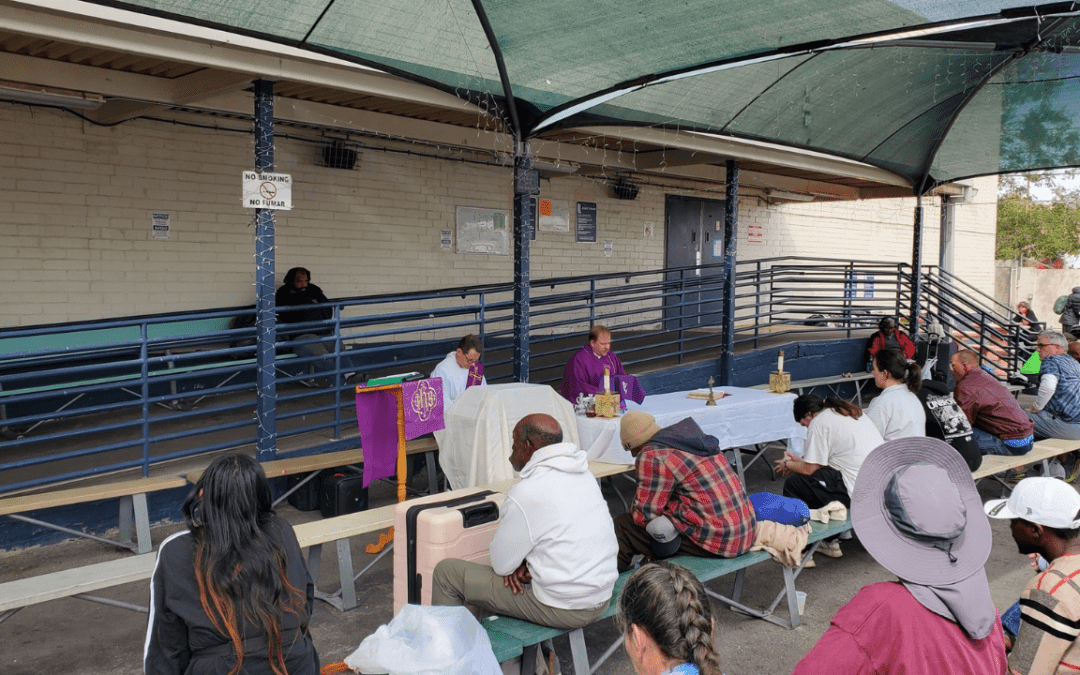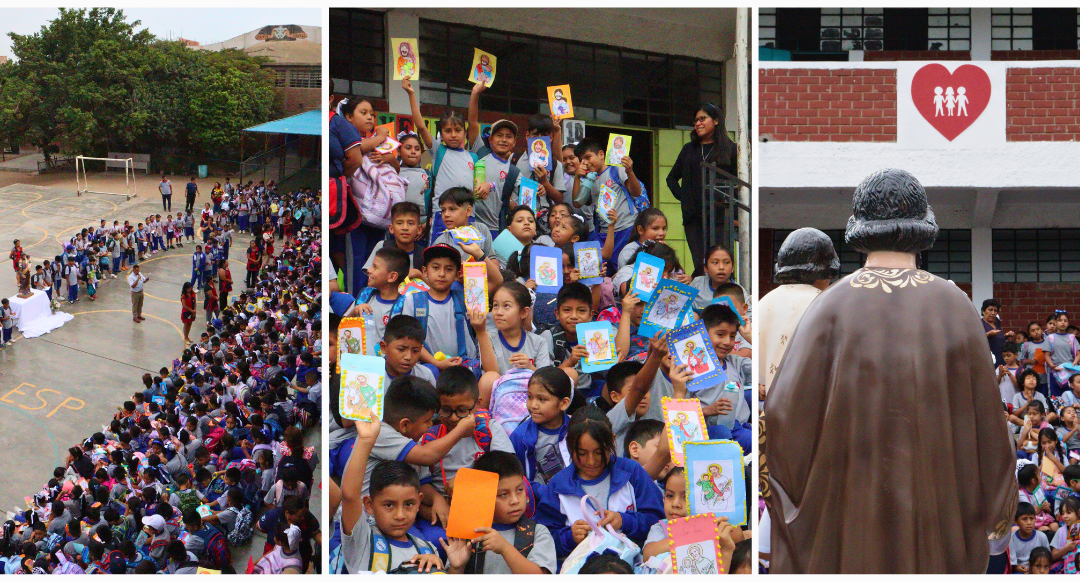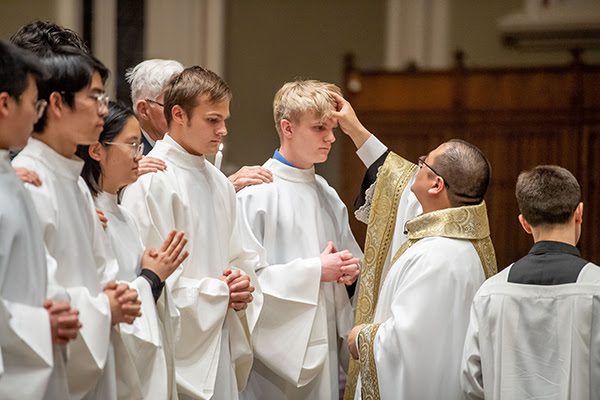One of Holy Cross’ foremost American historians, Fr. Thomas McAvoy, C.S.C., once proposed his “minority thesis.” Essentially, McAvoy said that every event of American Catholic history could be explained by the fact that Catholics have been a minority in this land from the very outset.
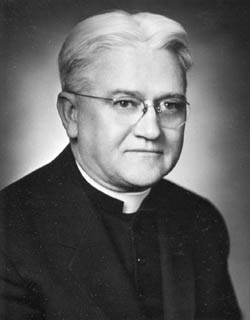
This intriguing statement captured my attention from the day I first heard it, and it answered a question which many might ask, “With 2000 years of Church history, what contribution, if any, could American Catholicism make in a little over 200 years?” My discovery of the breadth of American Catholic history propelled me toward my primary ministry of higher education within the Congregation of Holy Cross.
During my days of formation at the Jesuit School of Theology in Berkeley, I felt the call to higher education, primarily because I loved to learn. Granted the privilege by my formation staff to pursue a Master in Sacred Theology (STM) and the Master of Divinity (M.Div.) simultaneously, I chose for the STM to study American Catholic history. It did not take long for me to find my niche.
I always loved to learn and translated a love of learning into the desire to teach. While the two disciplines are related, they certainly are different, but I believe over time I have learned how to transfer my enthusiasm for learning into a positive pedagogical technique in the classroom.
At times, people use the term Priest-Professor to properly describe one’s ministry. At times, as well, I have observed some who believe their priesthood is not helpful or even detracts from their classroom ministry. My experience, however, tells me just the opposite; priesthood gives me unique entrée, not only to the subject matter, but more importantly to the lives of the students I am privileged to serve. My life as a scholar is, therefore, a direct extension of my priesthood in the Congregation of Holy Cross.
My ministry as a priest scholar has brought innumerable blessings to my life. My formal preparation for my present work at Stonehill College was conducted at The Catholic University of America – an institution located in an environment which brought me in contact with not only numerous people of like academic interest, but more importantly a wide variety of people due to the international character of the institution.
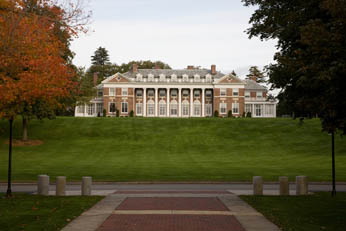
Since completing my doctorate I have been at Stonehill my entire academic career, save two years at the University of Notre Dame. While my expertise lies in American Catholic history, because of Stonehill’s small class size and totally undergraduate nature, I have been challenged to broaden my horizons to teach theological classes as well. Whether it is history or theology, however, I bring myself, that is my priesthood, to the classroom.
I have found that students appreciate teachers, especially those who they can get to know personally and with whom they feel comfortable, not as friends, but as respected mentors. Students have numerous opportunities to make friends with their peers; therefore, they do not seek nor desire such a relationship with their teachers. Rather, as young and impressionable men and women, many need and often seek out the additional qualities that a priest scholar brings beyond one’s lay colleagues.
Stonehill College, as a small institution, provides an environment which is ideal for a priest professor to act as a mentor as well as a teacher. It might be academic advising, counseling a resident assistant in a dorm, serving as an academic liaison to a varsity sports team, or simply engaging in the daily interaction in the classroom – the influence of the priest scholar is incalculable.
St. Paul puts it well in I Corinthians 3:6-7: “I planted, Apollos watered, but God gave the growth. So neither the one who plants nor the one who waters is anything, but only God who gives the growth.” God works through our ordination to “water” those we are privileged to serve. Clearly this is the case in any aspect of ministry, but it happens in subtle and sometimes even overt ways over and over again in the classroom.
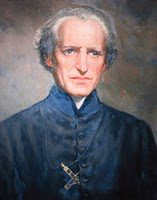
My ministry as a Holy Cross priest in higher education has provided numerous opportunities to travel and conduct research in areas I would have never have dreamed, yet the “bread and butter,” that which keeps one spiritually alive is, for me, interaction in the classroom and the opportunity to make a difference in the lives of young people. Our founder, Blessed Basil Moreau, made it crystal clear when he suggested that our work as a Congregation was to “make God better known, loved, and served.” For the educator he further told us that our mission is to educate not only the head, but the heart. In other words, our mission in education is to present academic questions and knowledge within the context of the faith we share, seeking to form the whole person and not just the mind.
The opportunity, provided each time one enters the classroom, to make a difference in the lives of influential young people is indeed a gift as well as a great privilege. I hope and pray as my ministry in higher education continues that I will always keep the students first, realizing that ultimately the reason I do what I do is to serve them, in response to the call from Jesus Christ and the work of a band of great men, whom as our Constitutions tell us, strode forth and made deep impressions. I consider it a privilege to follow their lead and do the same.
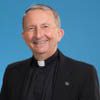
Fr. Rick Gribble, C.S.C., is a Professor Religious Studies at Stonehill College. He professed Final Vows in the Congregation of Holy Cross on August 27, 1988, and was ordained a priest on April 1, 1989. Learn more about the work of Holy Cross as Educators in the Faith in higher education.

